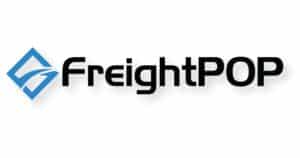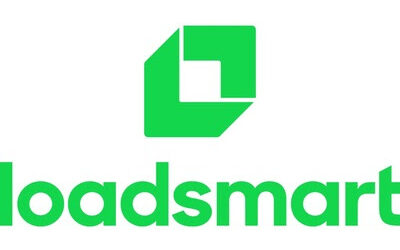Supply chains have become volatile and susceptible to external pressures. As a result, Transportation Management Systems (TMS) have become essential tools for businesses seeking to optimize their logistics operations, putting the TMS market in a massive upward trajectory. Small- and medium-sized businesses are now recognizing the advantages that TMS products have long offered to larger enterprises.
Implementing a TMS can lead to significant improvements in safety, efficiency, forecasting, and planning. However, with the plethora of choices available, businesses may find it challenging to determine the most suitable product for their needs.
After conducting extensive research, FreightWaves Ratings has identified the top TMS solutions across various categories. While none may be a perfect fit, these solutions can provide businesses with a benchmark for best-in-class features, enabling them to make informed comparisons and select the most appropriate TMS for their specific requirements.
And when you’re finished reading, check out the other articles in our ‘Choosing a TMS’ series:
- How logistics management software can help grow your business
- Questions to ask TMS trucking software providers before buying
- Top TMS solutions
Quicklook: Best TMS solutions
- Best for implementation: Loadsmart
- Best for small- to mid-sized carriers: Truckbase
- Best for enterprise trucking software: Rose Rocket
- Best for freight brokers: ITS Dispatch by Truckstop.com
- Best supply chain management suite TMS module: Oracle
- Best for ease of use: FreightPOP
- Best for efficiency: Load Logix
What is a TMS?
Transportation management systems are technology-based logistics platforms used to plan, monitor and optimize end-to-end supply chains. They can streamline inbound and outbound shipping with automated operations based on customizable parameters set by individual businesses.
In many ways, a TMS modernizes how companies handle their transport operations. They often replace spreadsheet- or even paper-based systems that are completed manually and offer little strategic benefit. By integrating them with an enterprise resource platform (ERP) or warehouse management system (WMS), businesses are able to gain total control over their supply chains.
Read Discover 4 TMS benefits for your business to learn more about how a TMS can help you.
Top transportation management systems
The market for transportation management systems is flooded with numerous options, potentially overwhelming prospective customers. However, considering the anticipated growth of the industry, the influx of new market entrants is understandable. Despite serving the same general purpose, TMS solutions differ significantly in design and target users.
To cater to small- and medium-sized businesses, many providers are introducing solutions that are inexpensive, user-friendly, and easy to implement. This segment was previously overlooked but has recently been adopting transportation management technologies at an increasing rate, making it a new frontier for providers vying for market share.
To appeal to this valuable customer segment, emerging providers are also developing niche solutions that cater to specific industries, regions, business sizes, modalities used, shipping volume, fleet operational models, or number of users. Niche TMS platforms require less customization, resulting in lower costs and faster implementation, and address common customer pain points out of the box. These advantages are particularly beneficial for smaller organizations that lack the internal IT resources to support heavily customized implementations.
Considering these trends, below are the top TMS solutions for 2025, organized by customer segment or need.
Top TMS for implementation: Loadsmart
Loadsmart revolutionizes logistics with cutting-edge tech and transportation services for optimized freight spend, efficiency, and service quality.
ShipperGuide TMS is Loadsmart’s user-friendly platform best known for its quick implementation and little to no need for prior knowledge or advanced skills.
The platform enables shippers to plan, procure, and execute shipments across all modes. It also includes end-to-end visibility, carrier selection, routing, pricing negotiations, and real-time price comparisons for choosing the lowest-cost carriers without compromising service.
Top TMS for small-to mid-sized carriers: Truckbase
Truckbase lets small trucking companies grow their fleets without increasing complexity. The software is affordably priced for smaller trucking companies looking for a simple, easy TMS to automate their back-office.
Manage dispatching without any excess data entry. Automate load building and dispatch with a PDF importer, send to drivers via text, and let drivers upload BOLs directly with integrated mobile scanning. Use instant invoicing and financial reporting tools to improve cash flow. Build trust with drivers with simple driver settlements without extra hassle or data entry using Truckbase.
Top TMS for enterprise trucking software: Rose Rocket
Ready to transform how your trucking and logistics company works? Meet Rose Rocket’s Platform software – designed for the uniqueness of your business, no matter how large. This is not your regular TMS; it’s an all-in-one operating system that organizes and streamlines everything you do.
What makes Rose Rocket special is that it doesn’t lock you into strict ways of doing things. Instead, it lets you make everything on your own – custom workflows, tools and rules that are flexible as your business changes. Its user-friendly design let’s you customize the software with panels, quick actions, custom templates, and more. Not to mention a full suite of integrations, order automation capabilities, plus ELD and live tracking. Rose Rocket’s Platform is the go-to for big companies in trucking – ready to make things better for your business.
Top TMS for freight brokers: ITS Dispatch by Truckstop.com
ITS Dispatch by Truckstop is the best TMS for freight brokers because it offers a user-friendly, cloud-based platform that streamlines operations like load management, dispatching, and invoicing, saving time and reducing errors. Its seamless integrations with load boards and accounting software simplify workflows, ensuring efficient communication and tracking.
With robust reporting tools and scalability, ITS Dispatch supports both small and growing brokerages. Additionally, its affordability and dedicated customer support make it a reliable solution for freight brokers seeking to maximize efficiency and profitability.
Top supply chain management suite TMS module: Oracle

Oracle narrowly edged out SAP for this honor, based on largely enthusiastic customer reviews. Both enjoy immense name recognition and are easily integrated into their respective companies’ other supply chain management modules.
Oracle is perceived by some as offering the more “mature” technology, but businesses with straightforward needs are unlikely to notice.
Top TMS for ease of use: FreightPOP

FreightPOP’s end-to-end solution earns high marks for usability wherever you look. It’s intuitive for users, easy for administrators to manage, and customer support is very responsive when questions come up.
With countless industry recognitions under its belt, FreightPOP’s client list includes some of the best known names in retail and manufacturing. And remarkably, despite its ease of use, the platform’s capabilities are also considered best-in-class.
Top for efficiency: Load Logix

Load Logix’s transportation management system uses machine learning algorithms to analyze data and provide real-time recommendations for load planning, dispatching, and carrier selection. By automating and optimizing these processes, Load Logix’s platform can reduce costs and increase operational efficiency for its customers.
Load Logix’s TMS integrates with other supply chain management systems, providing end-to-end visibility and control over the entire supply chain. This integration can help customers improve their planning and execution processes, reduce errors, and increase productivity.
Understand which TMS features are most important to you
Having literally hundreds of TMS options to choose from can be overwhelming, especially if you’ve never used one before. Knowing which ones other businesses find valuable is certainly one helpful approach for narrowing the field.
Don’t be discouraged if you don’t find the perfect fit for your business among the popular options listed here, though. Note which capabilities sound most helpful, and use them to search for and evaluate other solutions. All the research may seem like a pain now, but it’s better to put in some extra work up front than to rush into a decision you’ll later regret.
For more guidance on how to evaluate solutions, read How to make a TMS decision.
FAQ
Transportation management systems are technology-based logistics platforms used to plan, monitor and optimize end-to-end supply chains. They can streamline inbound and outbound shipping with automated operations based on customizable parameters set by individual businesses.
The cost depends on a variety of factors but on average the cost for a TMS works out to be $1 to $4 per freight load. Overall the expense can be between $10,000 and $250,000 for licenses and subscription access.
Any organization that relies on shipping and receiving items in a volume that requires coordination may benefit from a TMS. Users often include:
-Manufacturers
-Wholesalers
-Distributors
-E-commerce businesses
-Retailers
-Freight brokers
-3PLs





